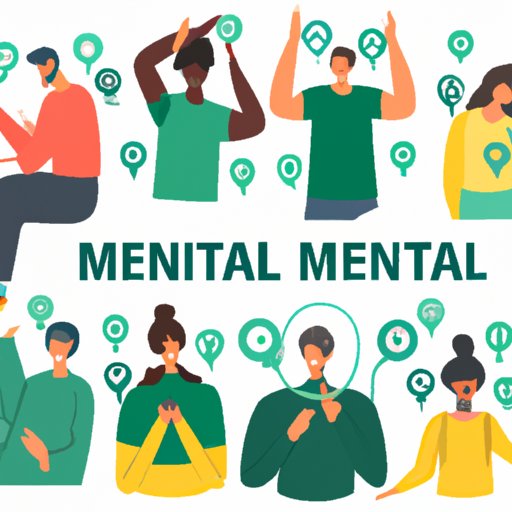
Introduction
Mental health is an important part of overall wellness, and seeking help when dealing with mental illness is an important step towards recovery. For some people, this may mean checking themselves into a mental hospital. However, the decision to seek professional care can be difficult and intimidating. In this article, we will explore the pros and cons of checking oneself into a mental hospital, what to expect during the admission process, and alternative treatment options. We will also offer advice on coping with the stigma surrounding mental illness and seeking support from loved ones.
Pros and Cons of Checking Yourself into a Mental Hospital
Checking oneself into a mental hospital can have both benefits and drawbacks. On one hand, a mental hospital provides access to professional care and medication. Being in a supportive environment can also be helpful and reassuring. However, there are also potential drawbacks. Patients may feel isolated or unsafe, experience stigma, or face a loss of autonomy.
When considering whether or not to check oneself into a mental hospital, it is important to weigh the pros and cons carefully. Seek guidance from trusted medical professionals and loved ones. Consider individual needs and preferences, as well as the severity and duration of symptoms.
The Admission Process: What to Expect When Checking Yourself into a Mental Hospital
The admission process for a mental hospital can vary depending on the hospital and the individual needs of the patient. Generally, the process involves calling for help or being referred by a healthcare provider, being assessed by a mental health professional, and being admitted to the hospital.
To prepare for the admission process, it can be helpful to make a list of symptoms or concerns, gather important information such as insurance or contact information for loved ones, and pack a bag with comfortable clothes, toiletries, and any necessary medications. Patients should also be prepared to answer questions about their mental health history, current symptoms, and any past treatment.
During the admission process, patients may face challenges such as long wait times, difficulty communicating with staff, or feelings of anxiety and stress. It is important to remember that hospital staff are there to help and support patients, and to communicate any concerns or questions as clearly as possible.
The Role of Family and Friends When Checking Yourself into a Mental Hospital
Having a support system during the admission process and beyond is crucial. Family and friends can help by providing emotional support, advocating for the patient’s needs, and staying involved in the treatment process. However, it can also be challenging for loved ones to understand and cope with mental illness.
To help loved ones understand mental health, it can be helpful to educate them about the illness and treatment options. Honest and open communication is key, and seeking professional help or joining a support group can be a helpful way to cope.
Alternatives to Checking Yourself into a Mental Hospital
For those who may be hesitant to check themselves into a mental hospital, there are alternative treatment options available. Therapy or counseling, support groups, and telemedicine are all potential options. These alternatives may offer flexibility, convenience, and the ability to remain in one’s own home or community.
When exploring alternative treatment options, it is important to research and seek guidance from trusted medical professionals. Consider individual needs and preferences, as well as the severity and duration of symptoms.
Stigma Surrounding Mental Hospitals and How to Cope
There is unfortunately still stigma and negative stereotypes surrounding mental illness and mental hospitals. This can make seeking professional help difficult and isolating. Coping with stigma can be challenging, but there are ways to combat it.
Seeking out support from people who understand or are going through a similar experience can be helpful. Practicing self-care such as exercise, mindfulness, and healthy habits can also be beneficial. Educating oneself and others about mental health and speaking out against stigma can also make a difference.
Conclusion
Checking oneself into a mental hospital can be a difficult decision, but seeking professional help is an important step towards recovery. Weigh the pros and cons carefully, seek guidance from trusted medical professionals and loved ones, and remember that you are not alone. Coping with mental illness and stigma takes time and effort, but with the right support, it is possible to find hope and healing.




